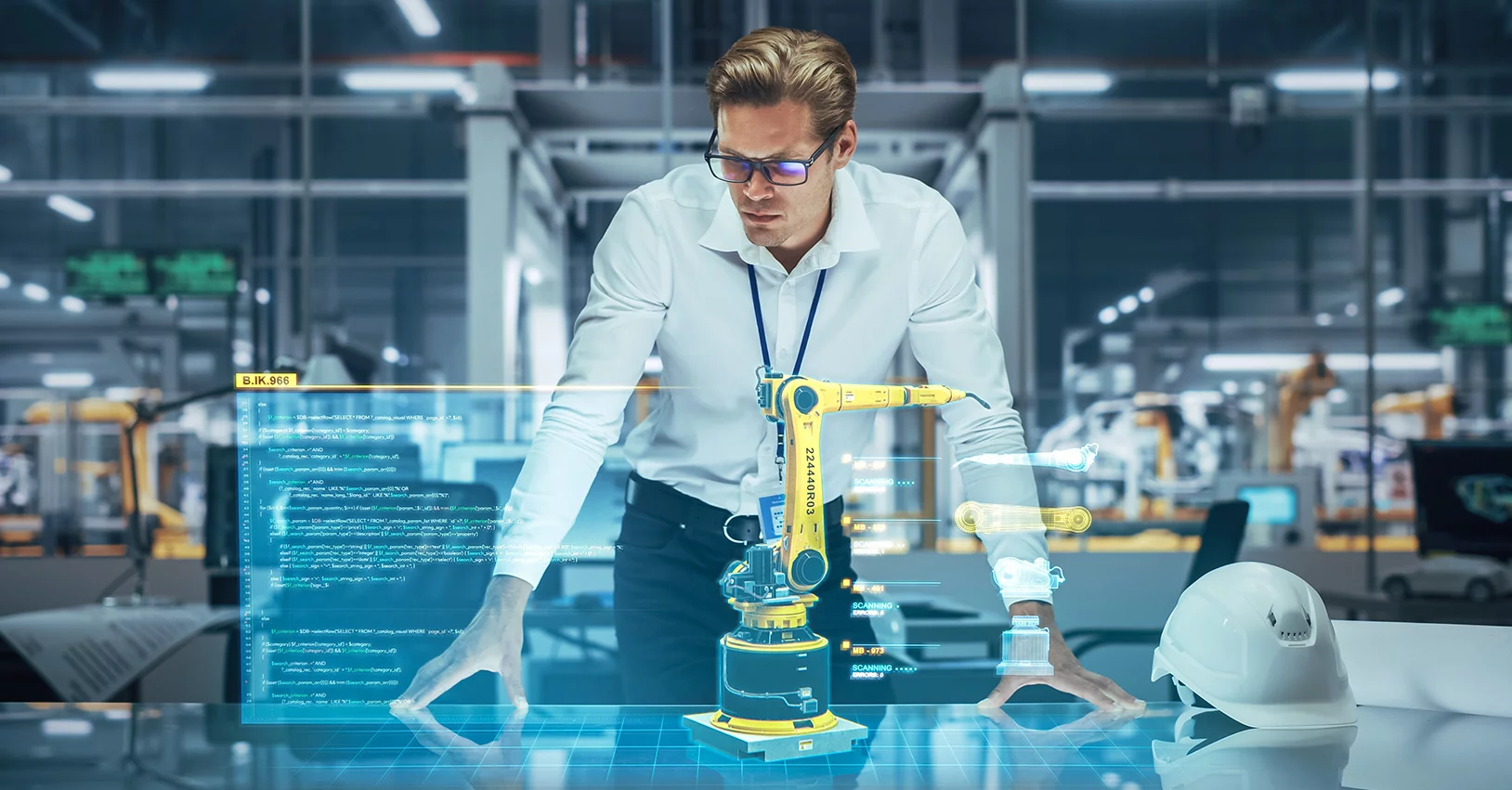

Blog

Home »
Industrializing Machine Learning to Drive Efficiency Across People, Processes and Products
Reading Time: 5 minutes
Industrializing Machine Learning is the systematic integration of machine learning processes and techniques into various facets of an organization’s operations to enhance efficiency, scalability, and strategic decision-making.
We stand at the threshold of a significant transformation, thanks to purpose-built machine learning platforms and tools designed to streamline and automate the deployment of machine learning models on a large scale. This impending change is set to democratize access to transformative technology, empowering not only the world’s largest enterprises but businesses of all sizes to leverage this disruptive potential.
Industrializing Machine Learning (IML) represents a strategic approach that capitalizes on the capabilities of artificial intelligence and data-driven insights to transform diverse aspects of business operations. Through the seamless integration of machine learning into workflows, and products, enterprises can unlock a multitude of advantages, significantly enhance human efficiencies, and position themselves for success in today’s data-centric environment. Here’s a breakdown of the impact industrializing machine learning can have on each of the pivotal areas: People, Processes, and Products
Empowering People
One of the most profound impacts of industrializing machine learning lies in its capacity to empower employees. Through the automation of repetitive and time-consuming tasks, machine learning liberates valuable human resources, enabling them to concentrate on more strategic, higher-level activities. Take, for example, the realm of customer support. Chatbots, enriched with machine learning capabilities, can efficiently manage routine inquiries, freeing human agents to address complex issues and provide personalized assistance. This not only reduces response times but also lightens the workload on support teams, ultimately leading to improved customer experiences.
In the domain of Human Resources, industrializing machine learning algorithms can automate resume screening, swiftly identifying qualified candidates from a pool of applicants. This streamlines the recruitment process, ensuring that HR professionals invest more time in engaging with potential hires and less time sifting through resumes. Furthermore, machine learning-driven analytics and insights equip employees with data-driven decision-making capabilities across various departments. Teams in marketing, sales, and finance can harness these insights to make well-informed choices, enhance productivity, and drive strategic growth.
Propelling Processes
Industrializing machine learning has a significant impact on the optimization and streamlining of business processes. In the manufacturing sector, machine learning-powered predictive maintenance models have the capacity to foresee equipment failures, allowing for proactive maintenance measures and the reduction of costly downtime. This shift from a reactive, disruptive approach to a proactive, cost-saving strategy is pivotal.
Within the realm of supply chain management, machine learning algorithms have the potential to revolutionize demand forecasting and inventory optimization. Through the analysis of historical data and current market trends, these models offer precise predictions, enabling companies to minimize excess inventory levels while ensuring product availability as required. This results in substantial cost savings and heightened efficiency in supply chain operations.
Financial institutions also stand to gain from machine learning, particularly in the area of fraud detection. Real-time transaction analysis identifies suspicious activities, curbing financial losses by swiftly uncovering potential threats. These models tirelessly scan transactions to safeguard both businesses and their customers.
Powering Products
The industrialization of machine learning empowers product development through data-driven enhancements and personalization. Consider e-commerce as an illustration. Machine learning-driven recommendation engines offer personalized product suggestions tailored to each customer’s preferences. This high level of personalization not only boosts sales but also elevates customer satisfaction, fostering brand loyalty.
In the automotive sector, autonomous driving features utilize machine learning for real-time decision-making. These systems analyze data from sensors and cameras to make instantaneous decisions, thereby enhancing vehicle safety and performance. In healthcare, machine learning-powered diagnostic tools expedite the analysis of medical images, enabling healthcare professionals to make swifter and more precise diagnoses. This not only saves lives’ but also enhances the overall efficiency of healthcare systems.
Preparing for the next leap with Machine Learning
Industrializing machine learning is not just a strategic option; it’s a business imperative in today’s data-driven world. Organizations that embrace this approach position themselves to drive operational efficiency, foster innovation, and maintain customer-centricity. As demonstrated through automation, process optimization, and product enhancement, the benefits of industrializing machine learning extend to every aspect of a business.
The advances in industrialized machine learning also bodes good for the convergence of Industrialized Machine Learning and MLOps a critical need and a compelling vision for the future of organizations operating in today’s data-driven landscape. It is paramount because it marries the strategic potential of machine learning, as seen in industrialized learning, with the operational reliability and scalability provided by MLOps. The fusion of Industrialized Machine Learning (IML) and MLOps is indispensable for businesses aiming not just to create advanced machine learning models but also to smoothly put them into action, oversee their performance, and ensure their sustainability in real-world scenarios. As reliance on automation and intelligent decision-making grows in areas like customer experience and product innovation, bridging the gap between developing ML algorithms and deploying them at scale becomes a competitive edge. With AI’s pervasive influence, driving widespread automation, businesses must actively harness the transformative potential of AI and machine learning while upholding operational efficiency and resilience in our ever-evolving technological landscape.
At Innover, we understand the significance of this strategic imperative. By investing in industrializing machine learning, we are committed to automating the mundane, optimizing operations, and delivering customized, data-driven solutions. This unwavering commitment ensures that your growth remains resilient and your relevance unwavering in the dynamic landscape of business and technology. Industrializing machine learning is not just a choice; it’s a definitive pathway to sustained agility and innovation in the future.

